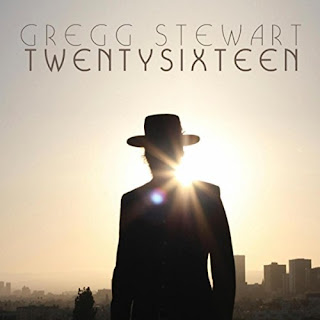MUSIC VIDEO: (PHOENIX)
https://www.youtube.com/watch?v=j13Jwyb-AnA
Written
by Glenn Babbitt, posted by blog admin
The
sensitivity defining Sarah Donner’s musical artistry has rapidly made her one
of the indie music world’s most respected performers and writers. There’s a
level of nuance in what she does that’s never coy or pretentious, never
inaccessible, and challenges listeners to engage complex emotions through
accessible melodies and pleasing, layered textures. It rates as a great album
in its current state, but it might have befitted being cut from a dozen songs
to ten instead. It’s a small complaint that not everyone will share. There
simply isn’t a single track on Black Hole Heart that fails to hit the mark – it
has a strong acoustic base and the Americana/folk/singer-songwriter group of
labels definitely applies, but Donner’s musical imagination has some risk
taking and element of surprise that many of her contemporaries lack. The lyrics
are blessed with a distinctly literary flair that sets them further apart from
similar sounding material.
Her
literary flair is apparent in the first song. She isn’t the first songwriter to
make use of mythological references, but “Phoenix” deserves noting thanks to
how she blends the personal into fine writing while still maintaining a low-key
air. One of the consistent strengths you’ll find on Sarah Donner’s work, under
any name, is an attention to balance and the lyrics work with the arrangement
rather than attempting to stand apart. Her sensitive but resolute phrasing
continues with the album’s second song and title cut. “Black Hole Heart” has a
light pop edge with the way it orchestrates its dynamics but its fidelity to
the album’s acoustic bent keeps the song well in line with the remainder of the
album. She returns to more solidly folkie territory with the track “Florida”
and you can hear her influences coming through more strongly on songs like this
without ever losing her voice as an individual. She brings an intensely
personal quality to the performance thanks to the lyrics and their plain-spoken
invocation of reality never pulls punches. These are songs strained with life’s
darker moments, but they are never so mired in despair that they prove to be
difficult listening experiences. “Tamsen Donner 1847” is an ideal example of
the last statement. The hushed pain conjured by its narrative and the matter of
fact, yet suggestive, manner the lyrics resolve, gives this song the
distinction of being one of the album’s finest atmospheric pieces.
Her
capacity for surprising listeners reaches its fullest potential on Black Hole
Heart with the song “The Flood”. The contributions of Philip Fillion’s organ
playing and Mike Batchelor’s trumpet take this song in a much wilder direction
from the earlier songs. She revisits mythological symbolism in the song “Albatross”.
It’s an ambiguously worded piece with warring emotions and one of the album’s
best arrangements. It takes a rather confrontational air during the refrain,
but there’s more of a sense of hurt filling the verses. Her compassion really
comes through more vividly than ever before on the song “The Longest Road” and
the beguiling vocal melody, complete with sing songy parts, makes it a pleasing
listening experience despite its weighty subject matter. Her folk influences
really come across quite beautifully on the album’s penultimate track “Sinking
Ship” and the meditative guitar figure is eloquent, yet simple. Black Hole
Heart is a profoundly moving musical work that illustrates the true extent of
Sarah Donner’s depth as a writer and performer while never failing to provide
an entertaining experience.


